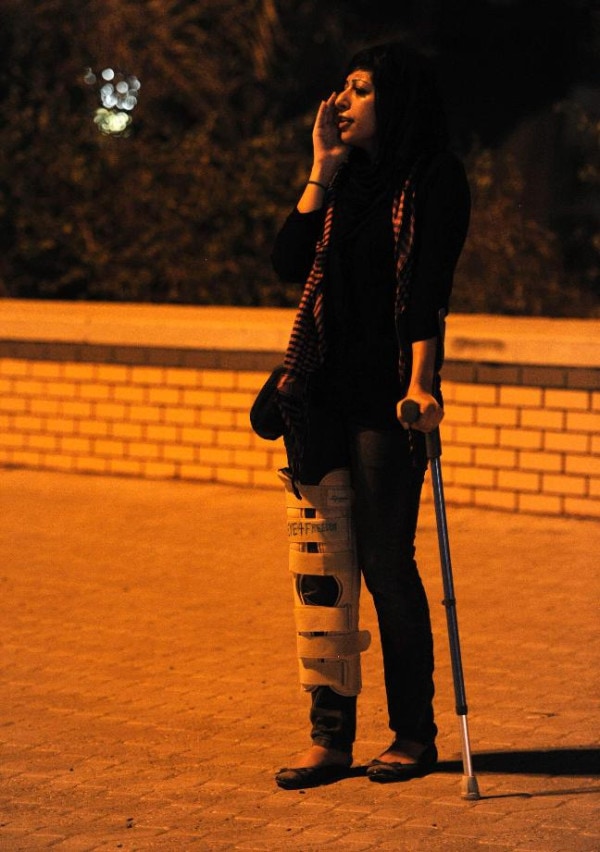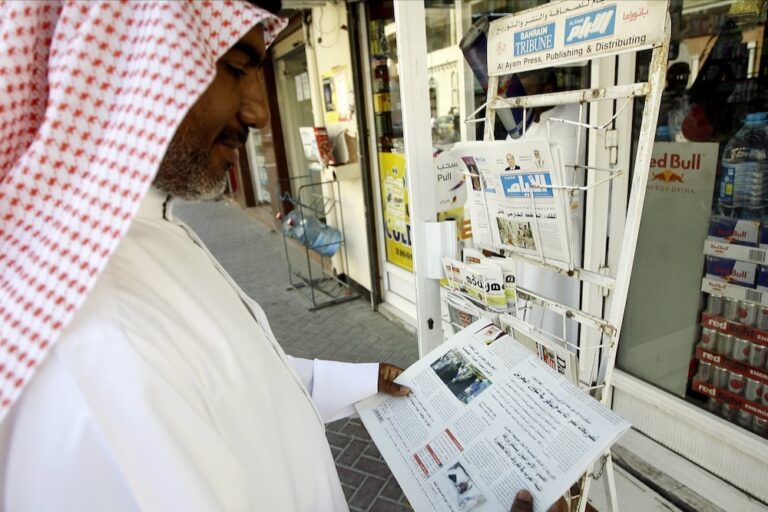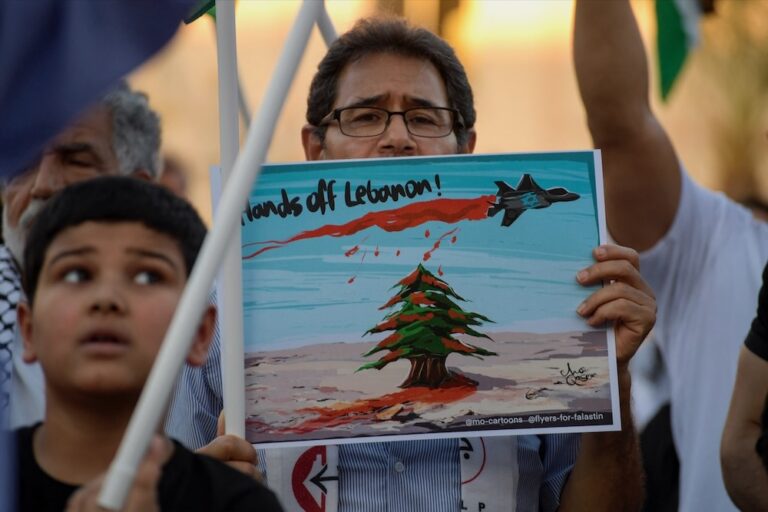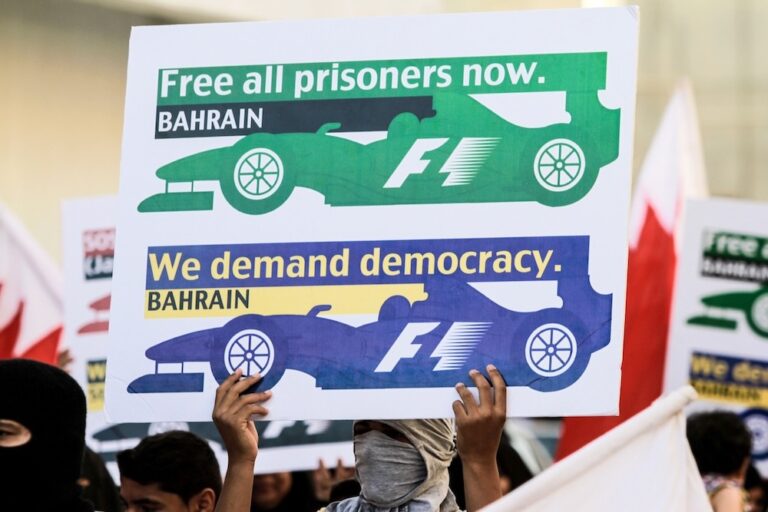Al-Khawaja was arrested after staging a one-person protest in front of Al Qudaibiya Palace in Manama on 27 February to demand the release of Mahmood Al-Jazeeri’s body who died due to a head injury during one of the anniversary protests.
UPDATE: Zainab Al-Khawaja’s family and her lawyer prevented from visiting her in prison. (ANHRI, 12 March 2013)
(BCHR/IFEX) – The Gulf Centre for Human Rights (GCHR) and the Bahrain Centre for Human Rights (BCHR) express concern over the renewed detention of human rights defender Zainab Al-Khawaja for peacefully protesting.
On 27 February 2013, the third high criminal court upheld the detention of Zainab Al-Khawaja for a month in the case of participating in an unauthorized demonstration and entering a restricted zone: the “Pearl Roundabout” area. Her lawyer said that he attended the first session whereby the judge decided the verdict was to be issued in the next session. The lawyer was not given the chance to present his defence.
Although the area has been guarded by security forces and members of the Bahraini army since 16 March 2011, there is no official declaration, neither issued nor published, that labels the area as a “restricted zone”. Al-Khawaja already served eight days for the same offence after being arrested in February 2012 on the borders of the Pearl Roundabout area. There remains 20 days for her to serve from this sentence.
On the same day, her appeal in the case of damaging MOI property — tearing the photo of Hamad bin Salman — was rejected and a two months’ prison sentence was upheld but she had already served that sentence during a previous arrest.
On the night of 27 February 2013, Al-Khawaja was arrested after she staged a one-person protest in front of the King’s palace in Al Qudaibiya, Manama, to protest the culture of impunity and lack of accountability in the security forces, and to demand the release of Mahmood Al-Jazeeri’s body who died last Friday due to a head injury from a tear gas canister. She stood with a banner spelling out, “you’ve arrested our fathers and our children, even our corpses. Let your palaces hear, we don’t fear your prisons”.
She was subsequently arrested and taken to the Hoora police station. She was then charged with obstructing traffic, damaging property, inciting hatred of the regime, and prejudice to authority.
Al-Khawaja has stated that she will not attend the public prosecution or court hearing in protest over the lack of an independent judiciary.
On 28 February 2013, Al-Khawaja’a acquittal in the case of insulting a public officer at the military hospital last April was overturned and she was sentenced to three months. Her lawyer said the case included an official document that confirms that the witnesses who testified against Al-Khawaja were not present at the time of the alleged incident.
The public prosecution said in a statement on 28 February 2013, that Al-Khawaja will start serving her sentences as of today (2 March 2013) which totals 3 months and 20 days, according to her lawyer.
Al-Khawaja has been arrested several times before and has spent over four months in prison collectively. Another four cases are already active in court today and she may face more prison sentences, while other cases are being prepared by the public prosecution. See the complete list of cases filed against her.
GCHR and BCHR believe that the charges and prison sentences against Zainab Al-Khawaja are politically motivated, and that she is targeted merely for practicing her human rights work and her legitimate exercise of freedom of expression and assembly.
The two organizations call on the US administration as well as other governments that have influence in Bahrain including the UK government, the EU and leading human rights organizations to:
- Call for the immediate release of Al-Khawaja as well as all other detained human rights defenders and prisoners of conscience in Bahrain;
- Increase pressure on the government of Bahrain to stop the on-going human rights violations as well as the escalated attacks against human rights defenders;
- Put pressure on the government to guarantee, in all circumstances, that human rights defenders in Bahrain are able to carry out their legitimate human rights activities without fear of reprisals, and free of all restrictions including judicial harassment;
- Abide by the provisions of the UN Declaration on Human Rights Defenders, in particular Article 1, which provides that “everyone has the right, individually and in association with others, to promote and to strive for the protection and realisation of human rights and fundamental freedoms at the national and international levels”.



